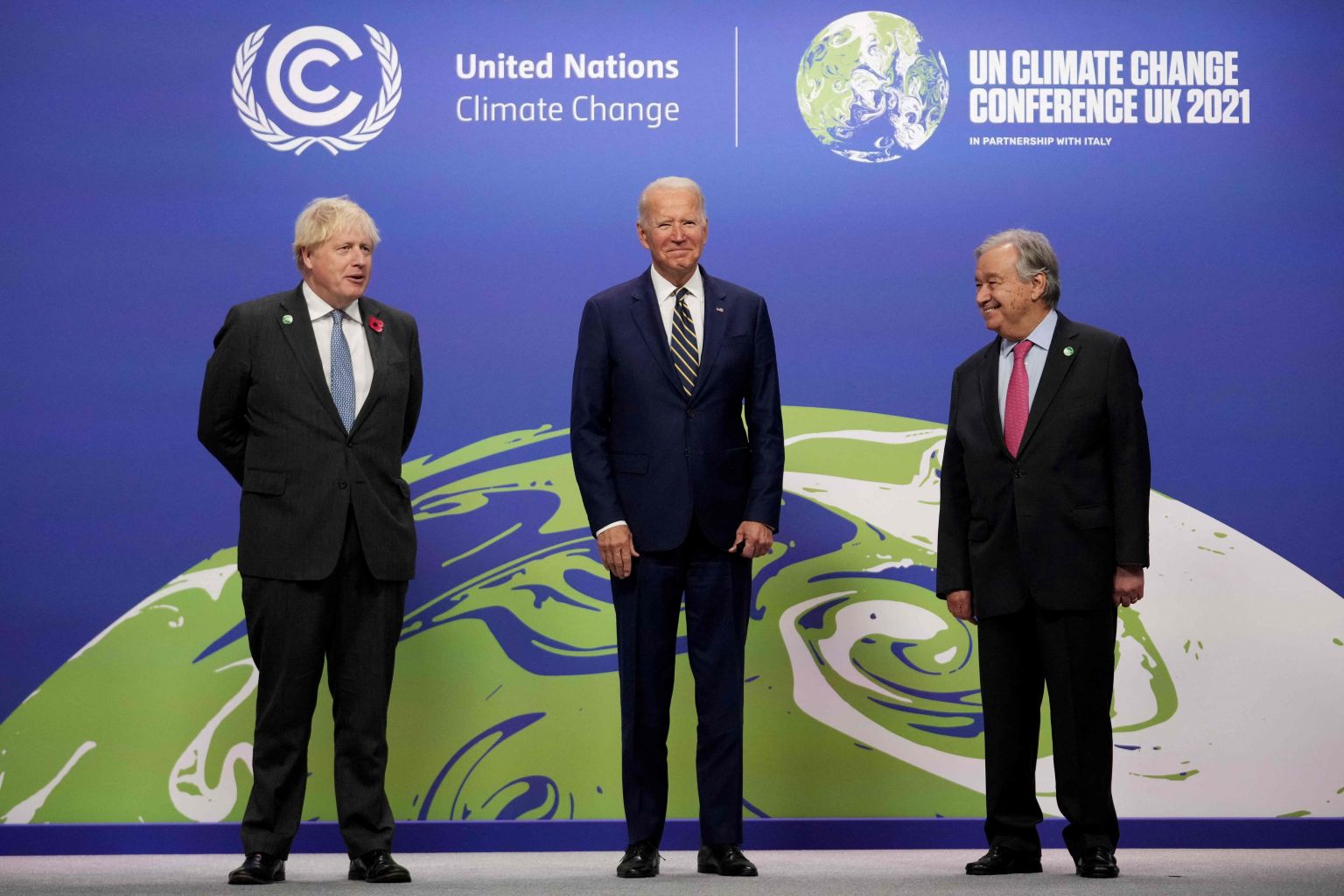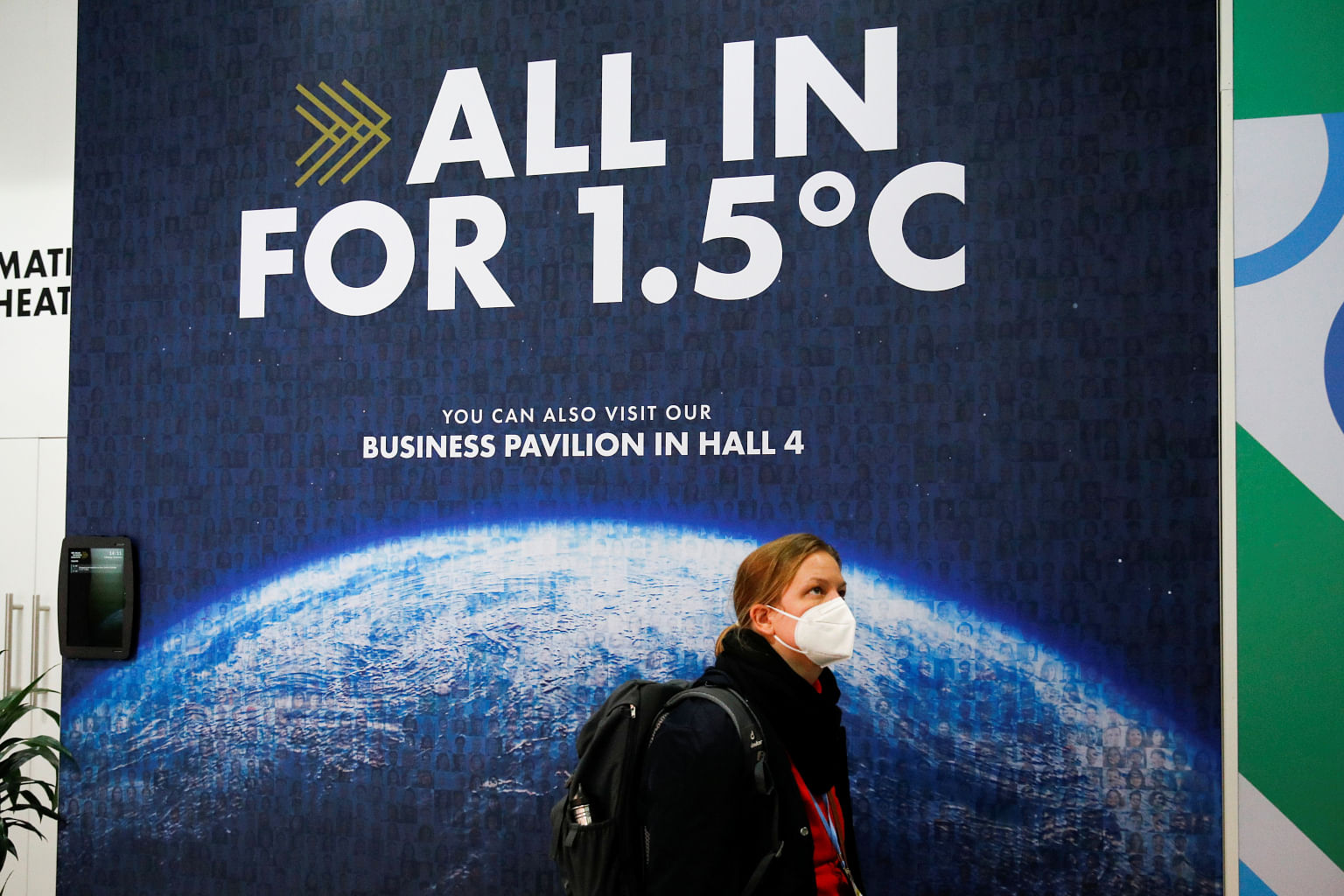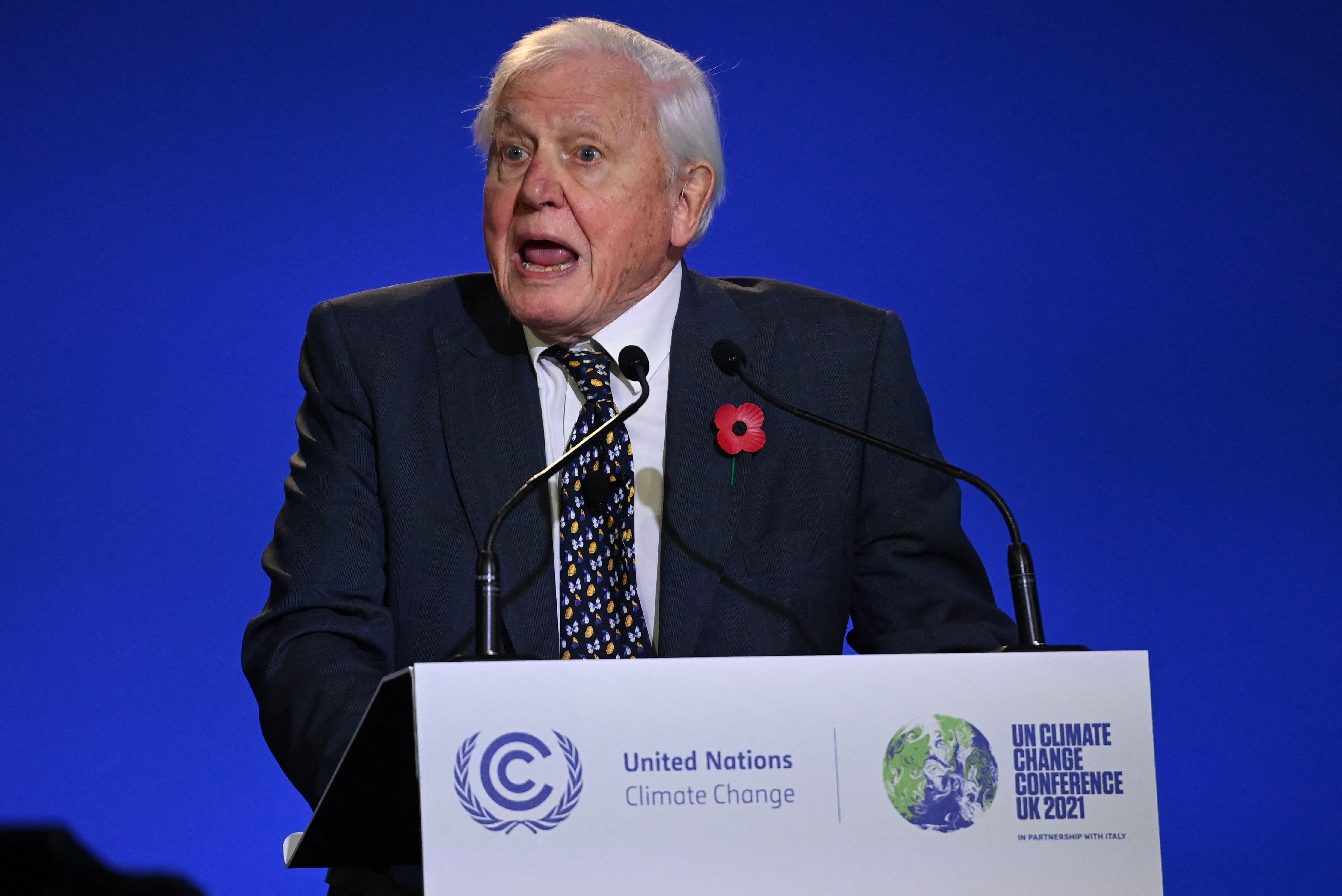World leaders urge action to avoid 'doomsday' climate future
Sign up now: Get ST's newsletters delivered to your inbox

British PM Boris Johnson (left) and UN Secretary-General Antonio Guterres (right) greeting US President Joe Biden (centre) at the COP26 UN Climate Change Conference in Glasgow, on Nov 1, 2021.
PHOTO: AFP
GLASGOW - World leaders at the COP26 conference made impassioned pleas on Monday (Nov 1) for action to save the world from devastating climate impacts, with British Prime Minister Boris Johnson likening climate change to a doomsday device in a James Bond film.
"It's one minute to midnight on that doomsday clock and we need to act now," Mr Johnson told the conference, referencing a digital clock out of a spy movie that "ticks down remorselessly to a detonation that will end human life as we know it".
About 120 leaders are attending the talks and will be making speeches on Monday and Tuesday as negotiations get under way on a deal to prevent increasingly severe weather disasters, slow the pace of sea level rise and accelerate a green energy revolution.
"Let this be the moment we answer history's call here in Glasgow," United States President Joe Biden said, as he urged the conference to kick off a decade of ambition.
On Monday, the White House said the President would work with Congress to provide US$3 billion (S$4 billion) in adaptation finance annually by 2024 for poor, vulnerable nations and pointed to his government's US$555 billion Build Back Better Framework, the country's largest single investment in clean energy.
Indian Prime Minister Narendra Modi set 2070 as a target for his country to reach net-zero carbon emissions, a much later date than those set by other polluters.
Mr Modi told other world leaders India would also increase the share of renewables in its energy mix to 50 per cent by 2030.
Mr Modi told other world leaders India would also increase the share of renewables in its energy mix to 50 per cent by 2030.
He also criticised wealthy states for failing to live up to finance pledges to poorer nations, saying it was his duty to speak up.
Indonesian President Joko Widodo said his nation needed financial support to accelerate steps to cut emissions. "Indonesia will be able to contribute faster to the world's net zero emissions goal (by 2050). The question is how big are developed countries' contributions for us?"
But while the pleas for action at Glasgow are urgent and the risks of failure are great, the atmosphere has been undermined by mistrust between rich and poor nations.
Developing nations, the most vulnerable to climate impacts, say wealthy states are still not meeting their financial pledges and should also be doing more to cut greenhouse gas emissions, mainly from burning fossil fuels.
The summit also comes after a weekend Group of 20 leaders' meeting that made only modest advances in climate action. The G-20 big economies, responsible for about 80 per cent of mankind's carbon dioxide (CO2) pollution, failed to commit to a 2050 deadline for halting net carbon emissions. This is a widely accepted target to prevent the most extreme global warming.
G-20 leaders also set no timetable for phasing out coal at home and watered down promises to cut emissions of methane, another greenhouse gas.
But they did agree to stop funding new dirty coal plants abroad by the end of 2021 and reaffirmed the so far unmet commitment to mobilise US$100 billion for developing countries for climate adaptation costs.
Wealthy nations agreed over a decade ago to provide the US$100 billion in annual finance by 2020 and reaffirmed it in the 2015 Paris Agreement.
The Paris pact, adopted by nearly 200 nations, enshrined the goal of limiting global average temperatures to 1.5 deg C above pre-industrial levels.

But global warming has already reached about 1.2 deg C and the need for global action has become urgent as impacts have intensified.
"The six years since the Paris Climate Agreement have been the six hottest years on record," UN Secretary-General Antonio Guterres told fellow world leaders on Monday. "Our addiction to fossil fuels is pushing humanity to the brink. We face a stark choice: Either we stop it - or it stops us."
Broadcaster David Attenborough pointed to giant screens flashing the number 414 in the conference hall - the concentration of CO2 in the atmosphere in parts per million. CO2 levels are now the highest in 3.6 million years, rising sharply over the past century.

Ultimately, he said the climate emergency came down to this single number, a "measure that greatly determines global temperature".
"We must halt carbon emissions this decade. We must recapture billions of tonnes of carbon from the air. We must fix our sights on keeping 1.5 deg C in reach. A new industrial revolution powered by millions of sustainable innovations is essential," he said, adding that current and future generations will look back at Glasgow and whether it resulted in a global deal that stopped the CO2 number from rising.
Outside the conference, protesters pushed leaders for strong action, led by global youth activists such as Swedish teenager Greta Thunberg.
"As citizens across the planet, we urge you to face up to the climate emergency. Not next year. Not next month. Now," Ms Thunberg tweeted, asking her millions of followers to sign an open letter accusing leaders of betrayal.
That letter had already exceeded one million signatures as at late Monday.
Mr Guterres hailed the youth activists.
"The climate action army - led by young people - is unstoppable. They are larger. They are louder. And, I assure you, they are not going away. I stand with them."


